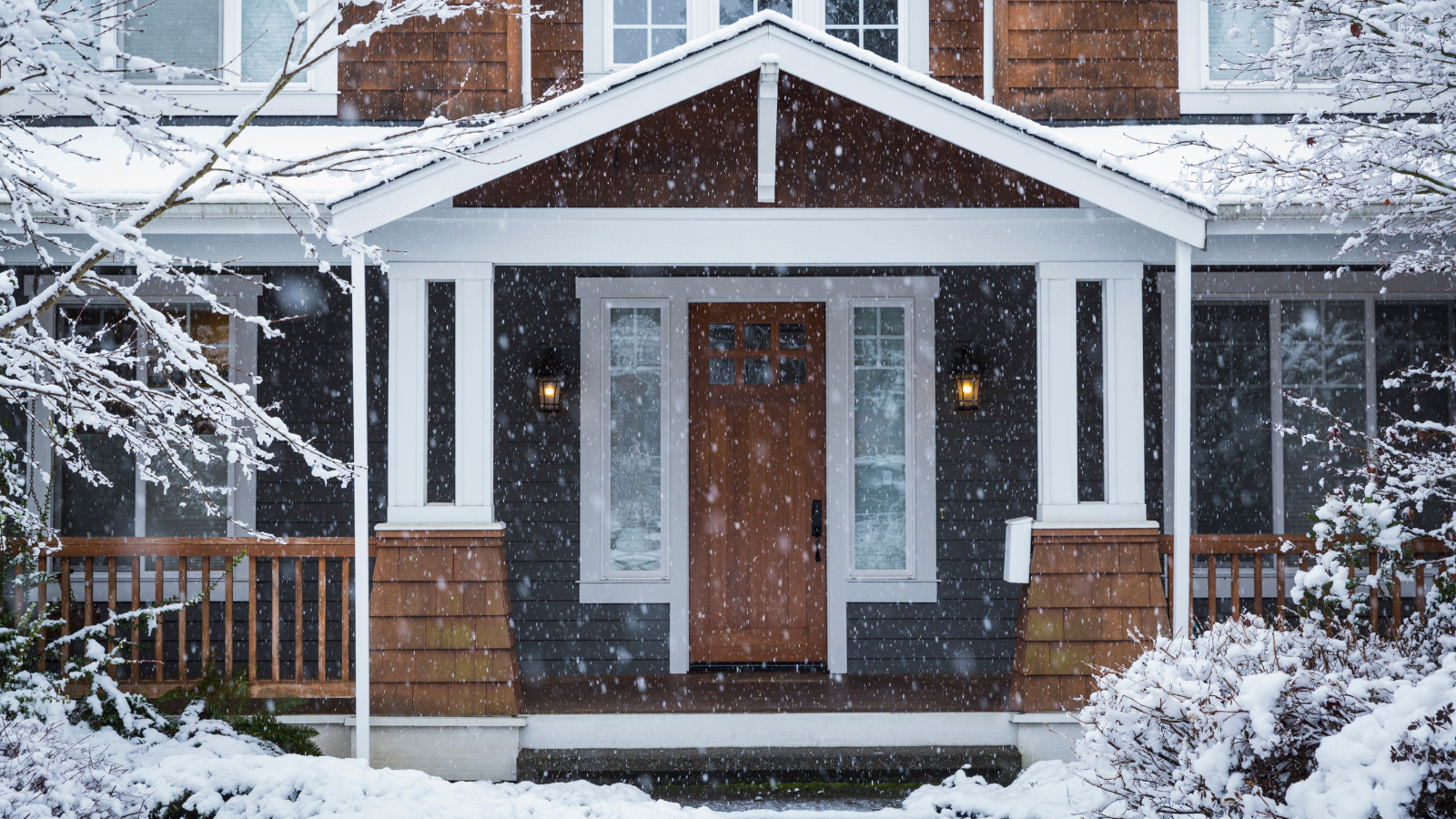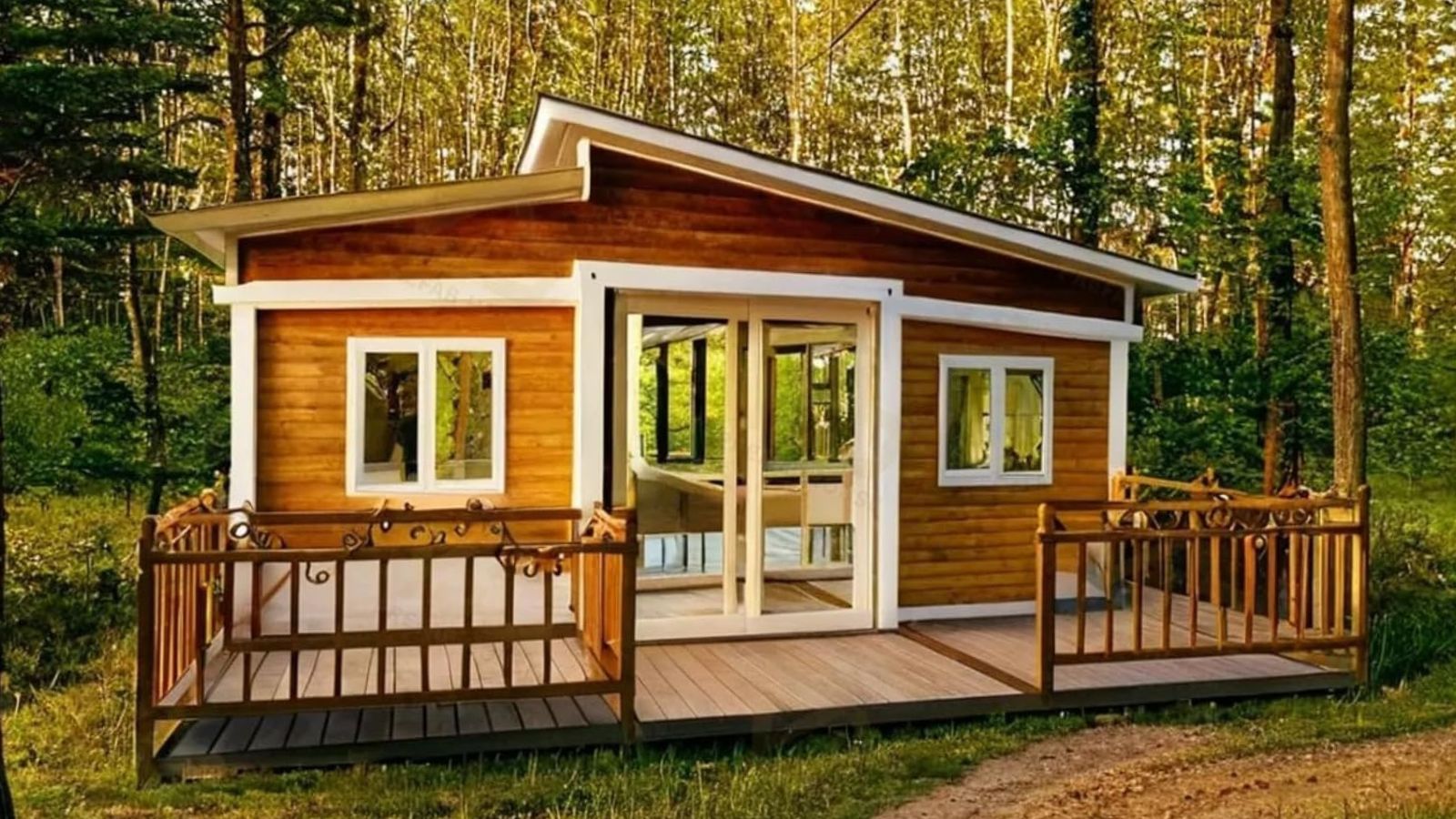Buying or selling a home in winter: here's what you should know
We asked real estate experts to share their thoughts on what you should know before buying or selling a home in winter.


Buying or selling a home in winter has traditionally been portrayed as difficult and best avoided unless you are desperate to move. Skeptics will say things like 'winter is a slow time of year' or 'it’s too cold and no one wants to view homes'. Worse still, some people believe you will get less for your home if you sell in winter. But are these assumptions really true?
Buying a house or selling your home during the winter months is certainly more complex than during the summer months. But listing your property at this time of the year has its benefits, and those looking to buy a new home may find they encounter fewer competitors.
We asked real estate experts to weigh in on what buying or selling a home in winter is really like. Below, they offer their wisdom and advice on what you should know.
Selling a home in winter isn’t as much of an issue as it once was

Is everything you’ve heard about winter being a tough time to sell wrong? Not quite. Is it as difficult to sell in winter as it used to be? Also not quite true. The truth is that it has become easier to sell during the winter months.
Steve deGuzman is a realtor and entrepreneur with over 30 years of experience, and he acknowledges that ‘traditionally, fewer people are looking to sell or purchase homes in the winter months.' The reasons are obvious: 'The weather is not as nice, the trees are bare, and it's more difficult to improve the curb appeal.'
'However, with the more widespread adoption of home-buying apps and virtual home tours, the seasonality of house sales has become less of an issue. These tools can give prospective buyers the best possible representation of a home right from their computer or device.'
Of course, virtual tours will never fully replace in-person tours - after all, buying a home is still a huge decision, and most people will want to visit the home at some point. Real estate technology is making it a little easier to get a buyer interested, though. That initial interest may just get them to book an in-person viewing, even if the weather’s cold.

Steve is the Founder and CEO of rēhavaPress. He has a long and successful track record in the real estate industry, both as a realtor and tech-focused entrepreneur.
2. Winter can be a good time to buy

The disadvantage of buying a home in winter is that fewer people put their homes up for sale, which means a lower inventory. At the same time, as a buyer, you still may find winter to be advantageous because in deGuzman’s words: 'there is also less competition from other prospective buyers.' You may find the whole process of looking and making an offer for a house a little less stressful and daunting in winter.
'Moreover, the owners of homes for sale in winter months may be more motivated to sell and accept offers due to the lower pool of potential buyers,' says deGuzman.
Frances Katzen, The founder and leader of The Katzen Team at Douglas Elliman, agrees, recommending buyers take advantage of the relative quiet of the winter months: ‘When there is less movement, and it’s not as busy, you have more negotiability,' she explains. 'Some sellers might be willing to offer off-season discounts.'
This, of course, is not a guarantee, and any winter discount will be small. Still, combined with reduced competition, the room to negotiate is still to be taken into account if you’re buying.

Frances Katzen, the founder and leader of The Katzen Team, consistently has made Douglas Elliman's prestigious top 10 list for highest grossing production in both sales volume and total transactions for the last decade. With well over $3 billion in total sales and consistently selling in excess of $350 million annually, Frances is a true powerhouse in the New York City real estate market.
3. Winter is a great time to check the energy efficiency of a house

There’s another important advantage to buying a home in winter, and it has to do with gauging how energy-efficient it is. If you’re buying in the spring and summer, you may not even think about checking how well the attic is insulated or how warm the house feels. But these are essential considerations if you’re buying in a climate with cold winters and want to cut energy bills.
Frances Katzen tells us that winter is 'a great time to check for efficiency firsthand to evaluate the insulation, windows, fireplace, furnace, or water heater.’
If you’ve found that you like a home, but it’s not energy efficient and will require eco-friendly home improvements, you may have more negotiating power with the seller. However, if you want to move in ASAP and it’s winter, you may need to weigh the potential discomfort (and high energy bills) against any potential savings on the home.
4. You may need to stage your home differently if selling in winter

By staging a house, we don’t mean you’ll have to redecorate completely. However, you may need to make a few effective changes that will make your home more appealing to winter buyers.
Typically, a home will appear darker and less appealing in winter than in the summer, so you, the seller, will need to compensate for the darkness. Frances Katzen recommends making your house look 'as cozy and as bright as possible by utilizing white bedding and bringing in as much natural lighting as you can.'
Improving natural light can be as simple as pulling all the curtains to the side of the window. If you are hosting viewings after dark, ensure your home is well-lit with plenty of attractive side lighting.
One thing you should never do as a winter seller is neglect your outdoor spaces. Sure, they won’t look as attractive as in summer, but buyers still want to imagine enjoying the deck/barbecue in the summer, so make sure you point out all the outdoor amenities.
FAQs
Is it smart to sell your home in winter?
While it may take a little bit longer to sell your home in winter, you may actually get a better buyer in the end. Frances Katzen explains: ‘It’s the end of the year, and most people are receiving bonuses and might feel incentivized to enter the market.'
If you would like to move on to your next home after selling, it’s not a bad idea to start the whole process sooner rather than later.
Do mortgage rates go down in winter?
Buyers may wonder whether the overall slowness of the seasons also means that mortgage rates are lower. The answer is yes, variable rate mortgages do tend to come in a little bit cheaper at the beginning of the year, especially in comparison to buying a house in summer. This won’t be much consolation to current buyers struggling with high interest rates, but it’s still something.
You may have noticed a pattern here: buyers seem to get more benefits in winter than sellers. Does this mean that you shouldn’t list your home right now? Not necessarily. It's important to weigh up the pros and cons before listing your property on the market and if you have a specific figure in mind, don't be afraid to stick to it. Winter will only be around for so long, so you may decide to hold out and buy or sell a home in summer instead.
Sign up to the Homes & Gardens newsletter
Design expertise in your inbox – from inspiring decorating ideas and beautiful celebrity homes to practical gardening advice and shopping round-ups.

Anna is a professional writer and academic. She taught English Literature for several years before joining Future where she wrote for Real Homes, Homes & Gardens and Livingetc for four years. She is a regular contributor for Parade Home, BiggerPockets, and many other publications. In her spare time, Anna enjoys hiking and gardening.
-
 This ultra-tiny 'luxury villa' is sold on Amazon – estate agents say this unconventional, pre-assembled home is more than a novelty
This ultra-tiny 'luxury villa' is sold on Amazon – estate agents say this unconventional, pre-assembled home is more than a novelty'Tiny homes are more than a trend. They’re part of a bigger conversation about how we live' – this foldable house is one of many shaping 2025's real estate industry
By Megan Slack
-
 You won’t believe these chic coastal backyard finds are from ALDI – and everything’s under $50
You won’t believe these chic coastal backyard finds are from ALDI – and everything’s under $50Hampton's style on an ALDI budget
By Charlotte Olby